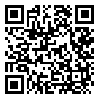Volume 5, Issue 2 (2025)
jpt 2025, 5(2): 257-276 |
Back to browse issues page
Download citation:
BibTeX | RIS | EndNote | Medlars | ProCite | Reference Manager | RefWorks
Send citation to:



BibTeX | RIS | EndNote | Medlars | ProCite | Reference Manager | RefWorks
Send citation to:
Abdollahi J. Critique of the Negation of Relativism by Appealing to Observation. jpt 2025; 5 (2) :257-276
URL: http://jpt.modares.ac.ir/article-34-79619-en.html
URL: http://jpt.modares.ac.ir/article-34-79619-en.html
Institute for the History of Science, University of Tehran, Tehran, Iran
Abstract: (1112 Views)
In the traditional debate between epistemic absolutists and relativists, the main issue is whether there are neutral and absolute criteria for selecting epistemic systems or whether such criteria are dependent on socio-cultural contexts. Absolutists consider empirical evidence as a neutral and absolute criterion, while relativists, emphasizing the theory-ladenness of observation and underdetermination, argue that theoretical presuppositions and thus non-absolute always influence observation. Recently, David Stump, by proposing a pragmatic stance as a third position, rejects both relativism and absolutism. He uses observation as an objective but non-absolute criterion to refute relativism. However, Shahram Shahriari demonstrates that Stump's third position cannot exist. We, by examining the debate between Stump and Shahriari, show that observation, as Stump envisions it, cannot provide sufficient grounds to refute relativism.
Article Type: Original Research |
Subject:
Philosophy of Science (Analytical)
Received: 2025/02/21 | Accepted: 2025/05/5 | Published: 2025/05/29
Received: 2025/02/21 | Accepted: 2025/05/5 | Published: 2025/05/29
References
1. Bhaskar R (2008). A realist theory of science. London: Routledge. [Link]
2. Bhaskar R (2009). Scientific realism and human emancipation. London: Routledge. [Link] [DOI:10.4324/9780203879849]
3. Bloor D (1981). The strengths of the strong programme. Philosophy of the Social Sciences. 11(2):199-213. [Link] [DOI:10.1177/004839318101100206]
4. Boghossian P (2006). Fear of knowledge: Against relativism and constructivism. Oxford: Oxford University Press. [Link] [DOI:10.1093/acprof:oso/9780199287185.001.0001]
5. Chalmers AF (1990). Science and its fabrication. Minneapolis: University of Minnesota Press. [Link]
6. Chang H (2022). Realism for realistic people: A new pragmatist philosophy of science. Cambridge: Cambridge University Press. [Link] [DOI:10.1017/9781108635738]
7. Collins HM (1994). A strong confirmation of the experimenters' regress. Studies in History and Philosophy of Science. 25(3):493-503. [Link] [DOI:10.1016/0039-3681(94)90063-9]
8. Duhem P (1991). The aim and structure of physical theory. Wiener PP, translator. Princeton: Princeton University Press. [Link]
9. Galison P (1987). How experiments end. Chicago: University of Chicago Press. [Link]
10. Hacking I (2000). How inevitable are the results of successful science?. Philosophy of Science. 67:S58-S71. [Link] [DOI:10.1086/392809]
11. Kidd IJ (2015). Inevitability, contingency, and epistemic humility. Studies in History and Philosophy of Science Part A. 55:12-19. [Link] [DOI:10.1016/j.shpsa.2015.08.006]
12. Kinzel K, Kusch M (2018). De-idealizing disagreement, rethinking relativism. International Journal of Philosophical Studies. 26(1):40-71. [Link] [DOI:10.1080/09672559.2017.1411011]
13. Kuhn TS (1996). The structure of scientific revolutions. Chicago: University of Chicago Press. [Link] [DOI:10.7208/chicago/9780226458106.001.0001]
14. Kusch M (2010). Hacking's historical epistemology: A critique of styles of reasoning. Studies in History and Philosophy of Science Part A. 41(2):158-173. [Link] [DOI:10.1016/j.shpsa.2010.03.007]
15. Kusch M (2016). Relativism in Feyerabend's later writings. Studies in History and Philosophy of Science Part A. 57:106-113. [Link] [DOI:10.1016/j.shpsa.2015.11.010]
16. Kusch M (2021). Relativism in the philosophy of science. Cambridge: Cambridge University Press. [Link] [DOI:10.1017/9781108979504]
17. Paya A (2016). Analytic philosophy through the prism of critical rationalism. Tehran: TARH-E NAGHD. [Persian] [Link]
18. Poostforush M, Taqavi M (2021). Bhaskar's minimal methodology: An argument against relativism. Methodology of Social Sciences and Humanities. 27(109):1-14. [Persian] [Link]
19. Sankey H (2010). Witchcraft, relativism and the problem of the criterion. Erkenntnis. 72(1):1-16. [Link] [DOI:10.1007/s10670-009-9193-7]
20. Sankey H (2012). Scepticism, relativism and the argument from the criterion. Studies in History and Philosophy of Science Part A. 43(1):182-190. [Link] [DOI:10.1016/j.shpsa.2011.12.026]
21. Sankey H (2023). The objectivity of science. Journal of Philosophical Investigations at University of Tabriz. 17(45):1-10. [Link]
22. Shahryari S (2023). Absolutism, relativism, and pragmatic fallibilism: A reply to stump. Journal for General Philosophy of Science. 54 (3):331-338. [Link] [DOI:10.1007/s10838-022-09634-1]
23. Shapin S (1996). The scientific revolution. Chicago: University of Chicago Press. [Link] [DOI:10.7208/chicago/9780226750224.001.0001]
24. Shapin S, Schaffer S (1985). Leviathan and the air-pump: Hobbes, Boyle, and the experimental life. Princeton: Princeton University Press. [Link]
25. Siegel H (2004). Relativism. In: Handbook of epistemology. Dordrecht: Springer. p. 747-780. [Link] [DOI:10.1007/978-1-4020-1986-9_22]
26. Stanford K (2006). Exceeding our grasp: Science, history, and the problem of unconceived alternatives. Oxford: Oxford University Press. [Link] [DOI:10.1093/0195174089.001.0001]
27. Stump DJ (2021). Fallibilism versus relativism in the philosophy of science. Journal for General Philosophy of Science. 53:187-199. [Link] [DOI:10.1007/s10838-021-09579-x]
28. Stump DJ (2024). Pragmatism versus social construction: A reply to Shahryari. Journal for General Philosophy of Science. 55(1):153-157. [Link] [DOI:10.1007/s10838-023-09668-z]
29. Zibakalam S (2016). Reason, argument, rationality. Tehran: ESM Publishing. [Persian] [Link]
30. Zibakalam S (2017). More myths. Tehran: ESM Publishing. [Persian] [Link]
| Rights and permissions | |
 |
This work is licensed under a Creative Commons Attribution-NonCommercial 4.0 International License. |






